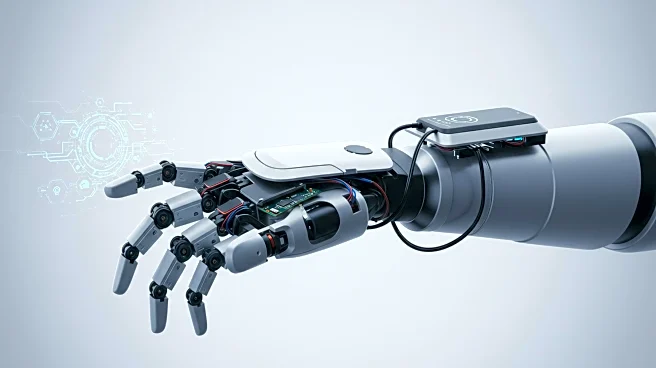What's Happening?
Artificial intelligence (AI) technologies initially developed for behavioral health are now being applied to assess and monitor movement disorders. These disorders, like Parkinson's disease, share challenges with behavioral health conditions in terms of observable patterns that are difficult to quantify. AI systems using computer vision, natural language processing, and acoustic analysis have shown success in detecting subtle indicators of mental health conditions. This technology is now being repurposed for movement disorders, offering potential for early detection and continuous monitoring.
Why It's Important?
The application of AI-driven assessment technologies to movement disorders represents a significant advancement in healthcare. It offers pharmaceutical companies and clinical researchers new tools for measuring treatment efficacy and disease progression. Continuous monitoring through AI can provide more sensitive and comprehensive data than traditional methods, potentially transforming clinical trials and drug development. This approach could lead to earlier detection of treatment effects, reduced sample sizes, and decentralized trials, enhancing efficiency and reducing costs.
Beyond the Headlines
The integration of AI technologies across medical domains raises ethical and regulatory challenges. Ensuring data privacy and security is crucial as continuous monitoring becomes more prevalent. Additionally, access to technology varies across demographics, potentially creating disparities in healthcare benefits. The regulatory framework for digital biomarkers is still evolving, requiring thorough validation to ensure clinical relevance. Addressing these challenges is essential for the successful implementation of AI-driven assessments in healthcare.









